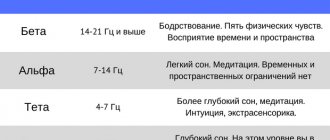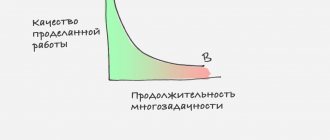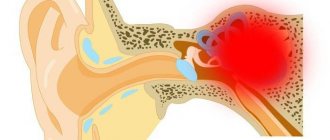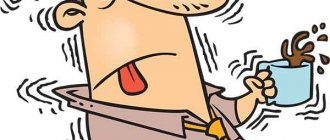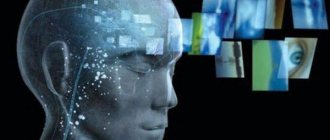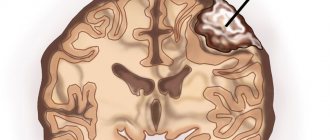- home
- Helpful information
- About gerontology
- Preventing memory loss
In old age, memory decline begins. In the first stages, this manifests itself as forgetfulness and absent-mindedness; later the person forgets about recent events and conversations. Without treatment, long-term memory also begins to suffer: memories of important events, loved ones, and details of one’s own biography are “erased,” skills are lost, and problems arise with recognizing relatives and with spatial orientation. Such disorders are easier to prevent than to cure, and for older people, preventing memory loss is especially important.
Sign up for a consultation
Reasons for the deterioration of the ability to remember in adulthood
There are natural reasons that inhibit mental activity. As well as external factors affecting concentration and the ability to remember.
The first include:
- Slowing down metabolic processes in the body;
- Vascular dysfunction.
- Injuries or infections of the head that lead to dysfunction of some of its parts;
- Lack of physical activity;
- Unbalanced diet;
- Stroke or heart attack;
- Lack of interest in new knowledge and hobbies;
- Stress and depression.
This causes neurons to lack oxygen and nutrients. Concentration and memory ability gradually decrease.
External factors include:
Short-term memories disappear first. That is, the information received last is forgotten.
Which brain, an adult’s or a child’s, learns faster?
In fact, the brain learns in exactly the same way, both in a child and in an adult. How does this happen? Scientists have proven that the brain spends the same amount of time on learning in both adults and children.
So why do children learn faster? Because they don’t have other worries like adults, they have more free time and motivation. But we adults can do it too if we want)
And there is one secret. To change, the brain must be willing to change. What does it mean to be ready for change?
For example, with the best intentions you force a child to learn something, it seems like he is learning, but there is no benefit. Why?
Because the brain cannot change when it is not interested, bored. There should always be at least some emotion present.
Maria Ammon, president of the German Academy of Psychoanalysis, reports that the brain in adulthood can develop, change, repair itself and is mainly influenced by emotions.
We know for sure from children that a bright emotional coloring promotes memorization.
So, the brain is ready to change when we are very excited or receive a reward, any: monetary, emotional, erotic, cookie.
In this case, dopamine is produced in the brain, which reduces the brain’s resistance to change and to remembering.
Therefore, the secret to developing memory and attention at any age is to reward yourself with a reward or experience a deep emotion.
The brain must know that after memorizing it will feel good) When we are happy, the hormone of joy is produced - dopamine. It is also called the memory hormone.
It is associated with working memory and is needed in order to connect it to action and turn off those areas of the brain that are active in a person when he is not doing anything.
How can you increase dopamine levels?
- The right foods: eggs, cabbage, green tea, seafood, apples, bananas, strawberries and a piece of chocolate)
- Correct actions: intense walks in the fresh air, dancing, playing musical instruments. But everything is in moderation, otherwise an excess of this hormone can lead to devastation and exhaustion.
What else is important to know?
Memory Tests
To determine how developed mental activity is, neurologists use memory tests for older people.
To conduct the test you need: a watch, paper and a pen. Within 60 seconds you need to remember the following words: haystack, sidewalk, castle, century, strip, film, carriage, aroma, landscape, Carpathians, moon, Himalayas, actor, stillness, book, calendar, flower, man, hill, woman, taxi , abstraction, vessel, helicopter, gift.
When time is up, write down the words you remember on a piece of paper:
- Less than 6 – specialist consultation and a program for training memory functions are required;
- 7-12 - attention and concentration suffer;
- 13-17 - good memory ability;
- 18-22 - the result is above average, phone numbers, card PIN codes and other important information are easy to remember;
- More than 22 - a high result, the ability to quickly remember large amounts of information, analyze and systematize it in your head.
Do several of these tests to determine the level of neuron activity in your brain.
You need to know that understanding is not the same as memorizing
Let's be honest, why don't we remember? Because we're growing up? Because memory has deteriorated? But no! We don’t remember because we have forgotten how to remember, we have forgotten how to learn it by heart!
Seeing new information, we understand it, realize it and... forget it. Unless, of course, some information is out of the ordinary) Understanding is not the same as memorizing.
Remembering is like trampling a path in the forest, forming a neural trace, but understanding this does not happen.
Therefore, learning understood material by heart is not only useful, but also necessary for further use of information.
We believe that there is a magic pill, some exercises, the most effective, which should be done for 15-20 minutes a day and our memory will improve.
Of course, it will improve, but this search for the perfect pill delays the development or at least maintaining our memory in good condition.
All you need to do is take a wonderful work, a poem by your favorite author and... learn it by heart.
Start small. 1 line a day, you don’t need much. But repeat this line all day long, so that every word stands before your eyes, so that you can repeat it forwards and backwards.
Next, we add a line every day.
What can interfere?
Techniques and exercises
If doctors discover serious abnormalities, they prescribe a course of drug treatment. But in some cases, you can get by with exercises for the brain and memory for an elderly person, which are performed at home with the help of loved ones.
Memory
For the exercise you will need a set of cards with paired images on them. Lay out the cards face down and turn them over one at a time, remembering which picture is which and collecting the same ones.
Subsequence
You need to take 15 items, it is important that they are new and unfamiliar. They need to be placed in random order on the table. For 60 seconds you need to look at these objects and remember how they are located relative to each other. After this, the assistant must mix them, and the trainee must put them in the right order.
Fine motor skills
Exercises performed with the fingers to improve memory in older people are very useful for mental activity. Doctors recommend mastering the skill of knitting and embroidery. If this is difficult, you should start with simple exercises. Scatter the peas and buckwheat on the table in front of you, mix, then divide into grains.
Art therapy
This technique is used to restore memory after a stroke in the elderly. The patient must be treated by a doctor. The essence of the technique is to use colors and their shades to develop new connections between neurons in the brain. At home, it is useful for older people to draw, mixing colors and obtaining new shades.
New skills
As an adult, it is useful to learn new skills. For example, learn to work on a computer, learn a foreign language. This stimulates neurons and makes them work fully.
Card games
Another option for keeping an elderly person with poor memory occupied is playing cards. Such games are based on memorizing moves and cards used. It develops the mind and does not get boring over time.
Online Games
As an alternative to home exercises, you can use brain simulators on a computer or tablet. The advantage of the electronic version is that before starting classes you are asked to take a test to determine your ability level.
Forget the advice about learning poetry. Memorizing without using imagination and associative thinking will not improve the situation. Such information quickly “flies” out of your head as unnecessary.
Ways to Maintain a Clear Mind and Intelligence
With the tips below, we want to complement what you have already learned. The sooner you start following them, the more benefits you will bring to your brain and the better the results will be by the time you reach old age.
Gymnastics for the mind
A specialist in brain imaging, Kawashima Ryuta, MD, from Japan, has spent many years studying ways to improve cognitive skills, which has allowed him to identify a few that are most effective. According to him, the best methods for training the brain are solving simple mathematical problems at speed and reading aloud.
Ryuta discovered that by performing simple mathematical calculations, the brain began to work much more actively than during any other activity. And subsequent experiments confirmed that by solving examples, the frontal lobes of the left and right hemispheres of the brain develop.
In the experiment, people who studied mathematics for just 5 minutes every day showed improved results in tests of communication, self-control, memory and creative thinking after a couple of months. People with Alzheimer's disease also participated, and after 6 months of training, the decline in their cognitive abilities slowed down.
Based on these studies, Ryuta developed a series of special notebooks called “Training the Brain.” These notebooks are collections of easy examples for performing mathematical operations: addition, subtraction, multiplication and division. Today, “Training the Brain” notebooks can be bought or found on the Internet, but you can get acquainted with the example below (and if you try to solve all the examples, you’ll get a good workout for your brain):
We think that you did an excellent job with the examples. But this is not the only way to preserve the mind and intelligence. Let's continue.
Smart lifestyle
You may be familiar with the book “The Retired Brain,” authored by cognitive neuropsychology professor Andre Aleman (if not, be sure to read it). It provides facts confirming that intelligence can be trained at absolutely any age.
For example, Sigmund Freud believed that in old age a person is no longer able to learn anything. But it is now known that the brains of older people have good plasticity, which means that their neurons can still create new connections that are required for learning. Due to them, the deterioration in the functions and structure of the brain observed during aging of the body can be compensated.
According to Aleman, brain training tasks like crossword puzzles and logic problems are an excellent way to prevent cognitive impairment. And in addition to this, the scientist provides a number of recommendations to help maintain clarity and sharpness of mind:
- Follow the principles of healthy eating. The most important part of a “smart” diet is moderation in food. The fewer calories a person consumes, the less oxidation his brain neurons are exposed to. It is advisable to reduce your intake of foods containing sugar, salt and saturated fat. And you need to add foods rich in vitamins to your diet, especially vitamin B12 and folic acid. You should also not forget to drink at least one and a half liters of water per day.
- Stay active. Physical activity is extremely beneficial not only for the body, but also for the brain. To maintain cognitive function, you need to do exercises that raise your heart rate and cause you to sweat for half an hour at least three times a week. Such exercises include cycling, jogging, swimming and any active sports games.
- Continue to work. This option is more suitable for older people, but you still need to know about it. An excellent way to maintain mental activity is to continue working after reaching retirement age. Of course, no one forces you to work at a factory at 70 years old. Work can be replaced by interesting activities and hobbies that require the use of memory and attention.
- Read books. If you want to keep your brain active for as long as possible, try to read as much as possible. Moreover, we are talking specifically about books, and not about magazines or newspapers. Firstly, books are much more useful and interesting, and secondly, articles in the press are usually short, and you can understand their essence by simply reading the title and skimming the paragraphs. In addition, when reading books, a person is forced to process and remember more information in order to follow the plot.
The benefit of the tips offered by Andre Aleman is that they not only have a beneficial effect on brain function and intellectual functions, but also help maintain a healthy body and broaden your horizons. Conclusion: use your brain and lead a healthy lifestyle so that your intelligence will serve you until old age.
Correct Use of Intelligence
Several decades ago, scientists were surprised to discover that the human brain has a unique quality - plasticity. This organ can physically change depending on environmental conditions, and neural connections in it can be formed until old age. The more often a person uses chains of neurons, the stronger they become. Taxi drivers are cited as proof of this: after several years of work, their hippocampus, the part of the brain responsible for spatial thinking, becomes larger.
Anyone can consciously train any area of their brain. But at the same time, you need to remember about the opposite effect: by not using your brain, you contribute to its degradation (we recommend reading the article “10 ways to prevent mental degradation” on this topic). Therefore, anyone who wants to have a sharp and clear mind in old age must force their brain to work to its fullest today.
Human intellectual potential is inexhaustible, but most people do not even strive to fully reveal it. Roger Sipe, a professional and performance coach who wrote the best-selling book Brain Development, believes that people can use their minds much more effectively, read four times faster, and remember three times better.
In the aforementioned book by Sipe you can find a lot of tips on how to improve your cognitive abilities, but giving up multitasking deserves special attention among them. The author explains it this way: thinking that a person can handle multitasking is completely wrong, and anyone who believes that they can successfully do several things at the same time is mistaken.
As author and personal development consultant Peter Bregman wrote in an article in the Harvard Business Review, multitasking is a trick that a person performs on himself in the belief that he is getting more done. But in reality, human productivity in this case drops by 40%.
The point is that a person does not do several things at once, but simply quickly switches between them, which only interferes with himself, and at the same time wastes time. The results of such work always require improvement. Plus, multitasking also dulls a person. IQ drops about the same as after a night without sleep. Many people pride themselves on thinking that they are great at multitasking, but this is self-deception.
And one more important nuance: in the realities of today, with a high pace of life and far from the best state of the environment, it is very difficult for the human body to cope with stress. The quality of the products also leaves much to be desired, and replenishment with useful substances is extremely necessary for a person. That is why it is worth paying attention to useful food additives, and they need to be mentioned separately.
Healthy Supplements
Renowned neurologist and member of the American College of Nutrition, David Perlmutter, has spent many years studying the effects of nutrition on human thinking abilities. He found that glucose and gluten are the main causes of memory impairment and the development of many neurological diseases, including Alzheimer's disease.
You can read in detail about Perlmutter’s research in his book “Food and the Brain.” We will consider only the supplements cited by the author that stimulate brain activity:
- Turmeric. This is a well-known seasoning that gives food a yellow color. But it is good not for this, but because it has been used for thousands of years in Indian and Chinese medicine. Turmeric contains curcumin, which can activate genes that produce incredible amounts of antioxidants. It also improves glucose metabolism. Together, all this significantly reduces the likelihood of developing brain diseases.
- Probiotics. This term refers to a special class of microorganisms and substances of microbial origin. They are used for therapeutic purposes and as food products, as well as dietary supplements. Eating probiotics improves brain function, reduces stress, and relieves anxiety, worry and depression.
- Resveratrol. Perlmutter calls it real magic. This amazingly useful substance improves blood circulation in the brain, stimulates the heart, slows down the aging process, and also regulates fat cells, preventing them from developing. The largest amount of resveratrol is found in grapes and drinks made from them.
- Vitamin D: This vitamin is most often mentioned when talking about bone health and calcium deficiency. For this reason, it is added to milk. But the effect of vitamin D on the body is much more serious, because it has a positive effect on the brain. The human central nervous system includes receptors for this vitamin, and it prevents the destructive effects of free radicals on neurons.
- Alpha lipoic acid. It is considered a powerful antioxidant for brain cells. Despite the fact that the body produces this fatty acid in the required quantity, the lifestyle of a modern person and poor diet force it to be taken as a supplement.
- Coconut oil. It can be used for both the prevention and treatment of neurodegenerative diseases. Knowledgeable people generally consider this oil to be superfuel for the brain, as well as a substance that stops any inflammatory processes. Coconut oil can either be added to food when preparing it, or drunk in its pure form, one teaspoon per day.
- Docosahexaenoic acid. This omega-3 fatty acid can be called one of the best among all supplements. Nutritionists and doctors call it a treasure that protects the brain from the development of many diseases and stops the processes of aging and degeneration. Eat plenty of fish, as well as salmon or cod liver, and your brain will thank you.
You can find a lot more useful and interesting information in the book “Food and the Brain”, and it will be better if you read it yourself. We will just make one more addition: David Perlmutter strongly recommends eliminating cereals, bread and sugar from your diet. In his opinion, this will allow one to become smarter and avoid the deterioration of mental abilities associated with the aging process.
What has been said in the article is quite enough to understand how important it is to start taking care of your brain now and what is necessary for this. Experts and simply knowledgeable people unanimously say that maintaining a clear mind and intelligence in old age is quite possible. We also share this belief, and as evidence we would like to give several examples.
Quick Memorization Methods
Methods for quickly memorizing information in older people will help retain important information in their minds:
- Association method - if you need to remember a name, title or number, it must be compared with an object or famous person with the same name;
- Abbreviation - a phrase is easier to remember if you take the first letters of each word, for example “you need to go to the dentist” - NPS;
- Visualization is a very effective method; you need to imagine in your imagination what you want to remember;
- From complex to simple - if you need to learn a large amount of knowledge, it is better to break it down into small blocks and learn gradually;
- Rhyming - with the help of poetic form, information is absorbed 4 times better;
- Hook method - numbers are better remembered if you replace them with objects. For example, 0 is a donut, 1 is a stick, 2 is a swan.
Everyone chooses an option that is convenient for themselves.
You can also train your brain using these methods.
Recommendations from experts
To stop forgetting, it is important not only to exercise daily, but also to adjust your lifestyle and diet. Brain activity is affected by general physical condition.
How to preserve memory in old age:
- Physical activity: you need to go for a walk or jog every day - this strengthens not only physical health, but also the nervous system;
- Proper nutrition: Vitamins and fatty acids are necessary to maintain stable brain activity. They are found in meat, fish, nuts, vegetables and fruits;
- Get adequate sleep: A 7-hour night's rest is essential for neuronal recovery;
- Single-tasking: focusing on one task helps you cope better with it and remember the sequence of actions.
If you or your loved ones have memory problems, do not ignore it. Research by neurophysiologists has proven that most functions can be restored. Therefore, follow the advice of experts and do the necessary exercises.
Depending on memory type
Exercises to develop visual memory
"10 differences"
Many people consider this a child's game, although in fact it is one of the best exercises that can be slightly modified and used to develop memory. When we look at two pictures next to each other and look for the difference between them, we train attention first. How to do it: Look at one of them first, study it for 4-5 minutes, memorizing every detail. And only then open the second one and look for differences.
Illustrations with animals and cartoon characters are suitable for children. Adults are recommended to start with a more difficult level:
An example of an illustration for the “Find the Differences” exercise for an adult
"Sherlock Holmes"
Learn to notice details in the appearance of those people with whom you had to communicate during the day. Before going to bed, try to remember their image and mentally answer the questions: what color are his eyes? what jewelry does he wear? What brand of watches does he prefer? how many buttons did he have on his jacket?
Exercises to develop auditory memory
"Superstar"
Listen to any song 2-3 times. Try to reproduce its lyrics and melody after an hour, in the evening before bed and the next day. Repeat the exercise again. Don't move on to new music until you've played this one completely.
"Big Uh"
At a certain moment in time, try to catch the silence and isolate the sounds in it. It could be a dripping faucet, neighbors talking behind the wall, a dog barking on the street. Remember what you heard. The next day, repeat the exercise in the same place and compare with what happened yesterday. What changed? What sounds are left? Did they get louder or quieter?
Such exercises will not be superfluous for anyone. They can be performed from early childhood, so that in the future there will be no problems with memory either in school, or at work, or in old age. They help keep the brain in good shape and improve blood circulation, which helps maintain clarity and sharpness of mind even at an advanced age. By exercising regularly, you will never know what senile sclerosis is.
Exercises to develop the right hemisphere of the brain
The development of the brain hemispheres gives a person the opportunity to solve complex problems faster than others, 5 and even 10 times. How to develop the right hemisphere? We learn from psychologists:
- The first exercise is called "Greeting to the General" . They salute with their right hand, as they do in the army. At the same time, show a sign of approval with your left hand. Thumb up, clenching the remaining fingers into a fist. The left arm is extended forward. Now you need to quickly change hands, salute with your left hand, extend your right hand forward, finger up. Swap hands several times.
- The second exercise is called: “Mushroom and glade” . The left palm is clenched in a fist, the elbow is on the back of the outstretched palm of the right hand. The right hand is positioned horizontally, at chest level. The left one is perpendicular to the top, the palm clenched into a fist, looking into your face. Swap your hands several times.
- The last movements are more like a tease or a joke . One hand calls out to the viewer, the other hand shows approval: thumb up, fist clenched. Now clap both hands, palm to palm, and switch hands. Show your approval with your other hands. Then again there is a clap and the figures change places. Repeat several times.
Exercises for memory development in preschoolers
The brain needs to be trained at a very young age. When a child assembles a pyramid of rings, having repeated the construction of this structure several times, he will soon remember that first he must put the largest donut on the pin, then smaller ones, and the smallest ones on top. A cone or asterisk is installed on the top.
Learning short rhymes, like:
“A clubfooted bear is walking through the forest,
He collects pine cones and sings a song.
Suddenly a cone fell, right on the bear’s forehead,
the bear got angry and kicked: stomp!
It's very fun to imitate the gait of a bear, hit yourself on the forehead and stamp your foot in the right place. These simple manipulations add visual and motor memory to auditory memory.
Fairy tales with frequent repetitions: “A mouse for a cat, a cat for a bug, a bug for a granddaughter, a granddaughter for a grandmother, a grandmother for a grandfather, a grandfather for a turnip,” develop auditory and visual memory, if you look at a colorful book with pictures.
Compiling pictures from puzzles develops attention to detail and visual memory. The child constantly has to compare a piece of the drawing with the general image.
Internal mood
If fate turns out that the place of residence of an elderly person is a paid boarding house for the elderly or a government institution, this is not a reason to despair. Indeed, some old people, finding themselves dependent on relatives or in an institution where care for the elderly is provided, give up, thinking that their life is over and nothing good will happen again.
However, it is not. It is known that mental abilities largely depend on how a person perceives himself, whether he considers himself an independent, independent person capable of withstanding the vicissitudes of life, or gives up. The desire and ability to manage your life and not give in to circumstances are important conditions for vigor, physical and psychological activity.
Brain exercises for older people
Brain exercises for older people are quite simple. Read fairy tales and retell them to your beloved grandchildren, memorize with them children's funny poems about “The Absent-Minded One from Basseynaya Street.” It's fun and enjoyable, and it also preserves your personality.
Intelligence training prevents a person from losing his skills and knowledge. It's not just our muscles that need warming up. Neurons restore their connections and do not die if the brain is loaded with feasible work.
You shouldn’t get too tired, but collecting pictures from puzzles, learning foreign words, walking in the park along an unfamiliar alley, remembering a new route, is necessary for good attention. Doctors recommend brushing your teeth and combing your hair either with your left hand or with your right. Simple experiments, but effective.
Good nutrition and fresh air will be the best helpers for you and your mind. Individuals who lead an active lifestyle do not suffer from senile dementia.

